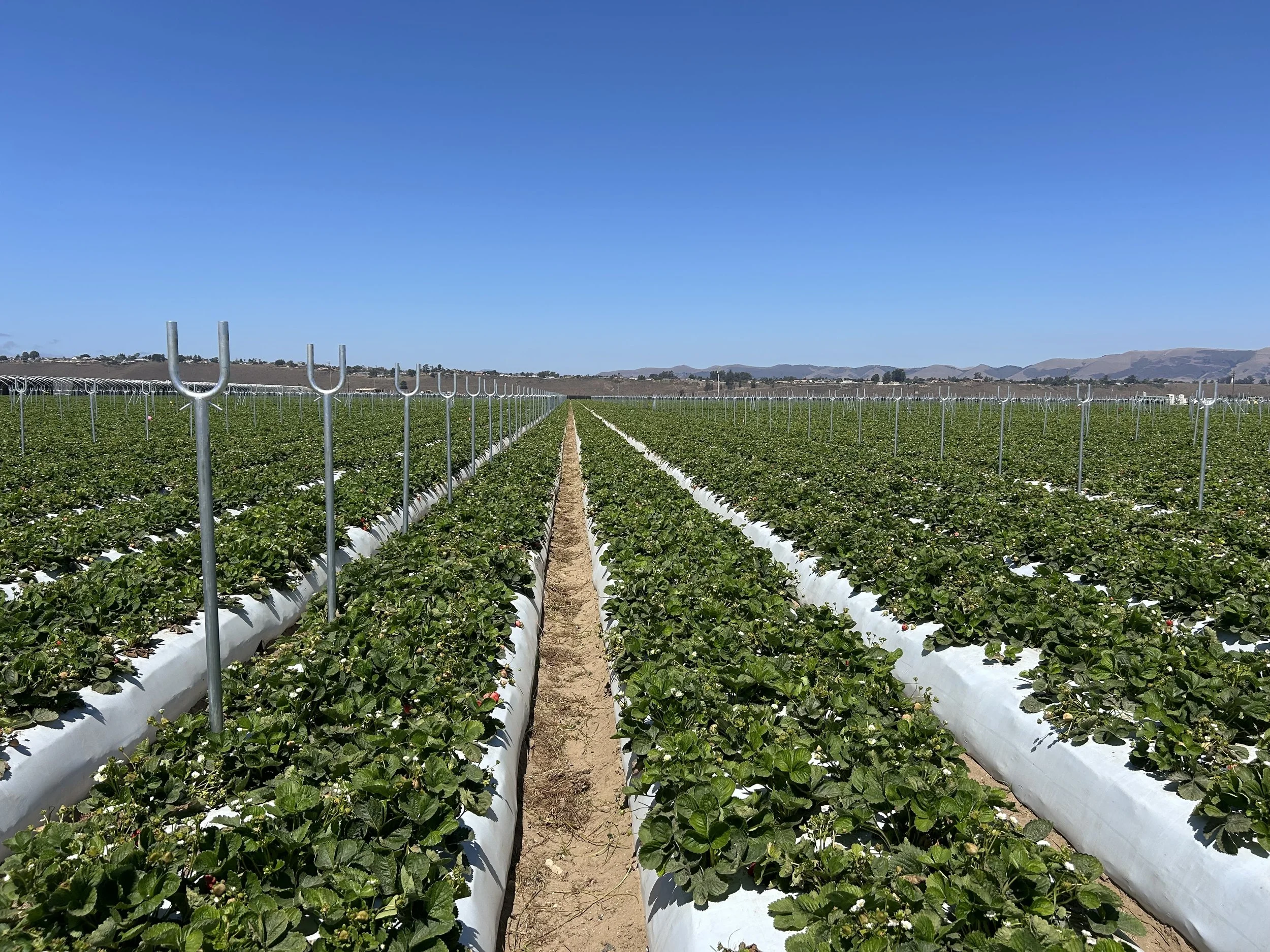
Sustainability Case Studies
Walmart Greenhouse Gas Emissions Reporting
Walmart has committed to reducing greenhouse gas emissions across its supply chain by 1 billion metric tons of CO2e by 2030, through a program dubbed Project GigatonTM. Walmart also participates in The Sustainability Index (THESIS), which collects sustainability metrics, including greenhouse gas emissions intensity, from suppliers.
Initially, participation in these programs was voluntary. In 2019, however, Walmart changed its supplier selection criteria to include sustainability and reiterated the importance of participation in these disclosures.
Faced with this new buying criteria, a fresh produce company supplying to Walmart suddenly had a six-week, non-negotiable deadline to complete Walmart’s most recent sustainability disclosure request.
Neglected Acres with Organic Opportunities
When Main Street Produce and Farmers Gate set out to transform Bonita Ranch into a thriving organic farm, they knew the story itself would matter — but also that it needed proof to back it up. Measure to Improve was brought in not to market the project, but to document it in real time, ensuring every step could be trusted, validated, and shared with confidence. By building a framework that aligned storytelling with retailer and consumer sustainability expectations, MTI helped capture the data and insights that turn transformation into a credible, lasting story.
Duda Farm Fresh Foods Sustainability
Duda Farm Fresh Foods is fully committed to helping its customers and suppliers achieve their own sustainability goals. In 2019, they defined sustainable packaging as a company priority and with the support of Measure to Improve, LLC, identified quantifiable goals to improve their packaging footprint.
With Measure to Improve's expertise and leadership, Duda was able to identify sustainable packaging characteristics and created a process for collecting data on those characteristics for all primary, secondary, and tertiary packaging.
California Giant Sustainability Certification
California Giant, a large berry supplier that contracts with growing operations in multiple countries, approached Measure to Improve, LLC (MTI), to help identify an approach for responding to sustainability information requests, particularly those around social accountability. With MTI’s support, California Giant’s first step was to determine the best way to evaluate and share their progress.
MTI and California Giant agreed that, for a company’s claims and achievements to be credible, they needed an approach that included validation of both data and practices. MTI recommended California Giant work to achieve a reputable sustainability certification. Third-party certifications are one of the strongest ways to validate that a company is meeting legal requirements and going “above and beyond” expectations.
Sheep Grazing in Vineyards
Grazing sheep in vineyards is an innovative and cost-effective approach to sustainable viticulture. This practice offers a range of benefits, including weed & vegetation management, soil health enhancement, lower input costs, chemical reduction, and improved operational efficiency.
Our expert-developed guide provides insights into best practices, financial benefits, implementation strategies, and case studies from real vineyard operations.
Reducing Food Loss & Waste in the Frozen Potato Supply Chain
Reducing food loss and waste (FLW) requires coordination among stakeholders across the entire supply chain. Using a whole-chain approach to study FLW provides comprehensive insight into the flow of material, relative waste hotspots at each node, and opportunities to increase the amount of potato utilized for human consumption.
For this project, the Pacific Coast Food Waste Commitment gathered stakeholders from across the frozen potato supply chain to study loss and waste from harvesting through retail sales. The products studied were mainly frozen french fries. The team was composed of staff from the PCFWC, supply chain experts, growers, processing facilities, and retailers.
Reducing Fresh Strawberry Loss & Waste in the Retail Supply Chain
The Pacific Coast Food Waste Commitment (PCFWC) commissioned a study on food waste in the fresh strawberry supply chain to identify hotspots and suggest interventions to reduce food loss and waste (FLW) and maximize profit.
This case study focuses on the life cycle of strawberries, from farm to grocery retail, and the data explores current food waste trends and illuminates next steps.
Produce & Reduce Program
Reducing Waste in Agriculture by Cultivating a Culture of Sustainability
In 2020, the California Workforce Development Board, through its High Road Training Partnership initiative, offered funding to organizations that could help tackle climate change, improve job quality and promote equity for disadvantaged populations.
Recognized as leaders in workforce development and sustainability in the fresh produce industry, Equitable Food Initiative (EFI) and Measure to Improve (MTI) partnered for the first time on a pilot program at three California agricultural facilities, bringing an innovative approach to building organizational capacity, improving waste management practices and reducing greenhouse gas emissions.
Certified Zero Waste
Companies on a zero-waste journey continuously strive to reduce, reuse and recycle materials to dramatically decrease waste to landfill. A zero-waste initiative is not an “all or nothing” proposition. By incrementally diverting materials like cardboard, organics, and plastic packaging from landfill, companies are helping to conserve natural resources, decrease greenhouse gas emissions that effect climate change, and reduce air, water and soil pollution from the extraction, manufacturing and disposal of materials.
MTI is the produce industry’s go-to expert for waste reduction programs and Zero Waste certifications. Collectively, the zero waste initiatives MTI has helped to launch have saved over 4 million dollar from avoided costs and rebates, eliminated 57 million pounds of materials from landfill, and more.









